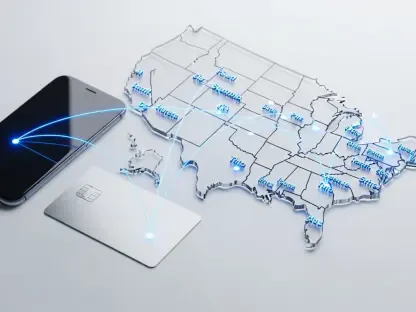Setting the Stage for a Digital Commerce Revolution
In an era where digital platforms dominate consumer engagement, content creators have emerged as pivotal players in driving economic activity, with the creator economy now valued at billions globally, reshaping the very foundation of modern commerce. This market analysis delves into the transformative role of creators as entrepreneurs, exploring how they are not just influencing trends but actively changing the landscape of business. The focus is on their financial achievements, the innovative strategies they employ, and the systemic challenges they face, particularly in key markets like the UK. This examination aims to uncover the trends propelling this sector forward and the implications for businesses, consumers, and policymakers. By dissecting current patterns and forecasting future growth, this analysis provides a comprehensive view of how creators are becoming a cornerstone of modern economic systems.
Diving Deep into Market Trends and Creator Dynamics
The Creator Economy’s Explosive Growth Trajectory
The creator economy has evolved from a niche interest into a robust market segment, fueled by the accessibility of platforms like TikTok, YouTube, and Instagram. Over recent years, this sector has seen exponential growth, with creators transitioning from casual content producers to recognized small business owners. Data indicates that in the UK alone, a significant majority of creators earn a steady income, with many securing at least £1,600 monthly, and over a third generating between £1,600 and £3,999. This financial milestone highlights the market’s maturity, as creators diversify revenue streams beyond traditional ads to include direct sales and crowdfunding, signaling a shift toward sustainable business models.
Entrepreneurial Mindset Amidst Financial Hurdles
A defining trend within this economy is the blend of creativity and business acumen that creators must master to thrive. Many are self-educating in essential skills such as contract negotiation and financial planning, often relying on peer networks for guidance. Despite this, a notable gap exists—while a strong percentage of UK creators identify their work as a small business, fewer than half feel confident in handling financial aspects. This discrepancy points to an underserved need for targeted education and resources, a critical factor that could determine the scalability of their ventures in a competitive digital marketplace.
Payment Systems as a Double-Edged Sword
Financial transactions form the backbone of creator commerce, yet they also present significant challenges that differentiate this market from traditional sectors. Modern payment processors have enabled global reach and faster access to earnings, a boon for creators aiming to monetize international audiences. However, persistent issues like payment delays hinder cash flow consistency, unlike the more structured financial systems of conventional businesses. The market opportunity here lies in developing tailored financial tools—solutions that could bridge the gap between creator needs and existing infrastructures, fostering greater economic stability for this growing demographic.
Regional Variations and Support Ecosystem Gaps
Geographic diversity adds another layer of complexity to the creator economy, with varying levels of infrastructure and cultural acceptance impacting growth. In the UK, high optimism prevails, with a vast majority of creators expecting revenue increases over the next year, supported by strong community encouragement. Conversely, emerging markets like Brazil or the UAE face additional barriers, such as limited access to efficient payment systems or differing societal views on creator careers. Industry initiatives to recognize creators as legitimate businesses and provide advanced technological support are gaining traction, though misconceptions about the seriousness of this profession still linger, underscoring the need for broader systemic change.
Forecasting the Future: Creators as Commerce Pioneers
Looking ahead, the creator economy is poised to redefine market dynamics through technological innovation and shifting consumer behaviors. Emerging tools like AI for content production and blockchain for secure payments are expected to enhance efficiency, allowing creators to scale operations globally. Economic projections suggest increased consumer spending on digital content, which, coupled with potential regulatory shifts around taxation and data privacy, will shape operational frameworks from 2025 to 2027. The UK market, with its robust earnings growth and international reach, is likely to lead this transformation, particularly as financial solutions tailored to creators become more prevalent, potentially positioning them as frontrunners in community-driven commerce models.
Reflecting on Insights and Charting Strategic Paths
This analysis of the creator economy underscores the remarkable ascent of content creators as key economic contributors, with substantial earnings and innovative approaches redefining commerce in markets like the UK. It reveals critical gaps in financial literacy and payment systems that pose challenges to sustained growth, alongside regional disparities that highlight uneven market development. The strategic path forward involves actionable steps for stakeholders—businesses benefit from partnering with creators through transparent sponsorships, while creators gain from prioritizing financial education and leveraging instant payout platforms. Industry leaders are moving to bridge support gaps with tailored tools, setting a precedent for future scalability. Ultimately, the focus shifts toward fostering an ecosystem where creators can thrive as recognized entrepreneurs, ensuring their impact on global commerce continues to expand.









